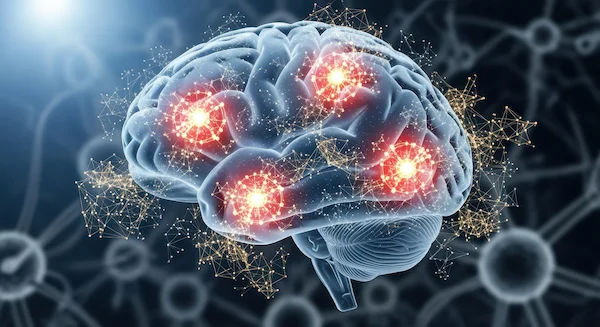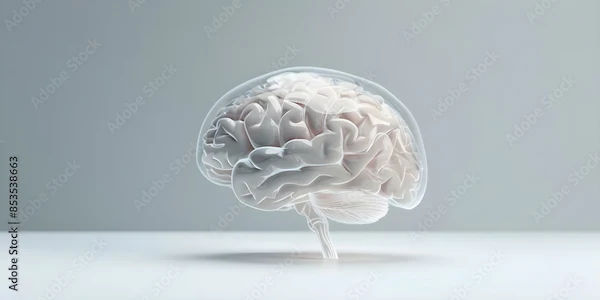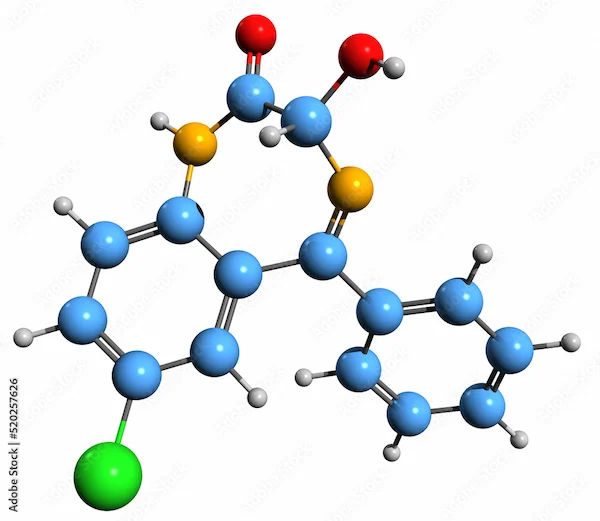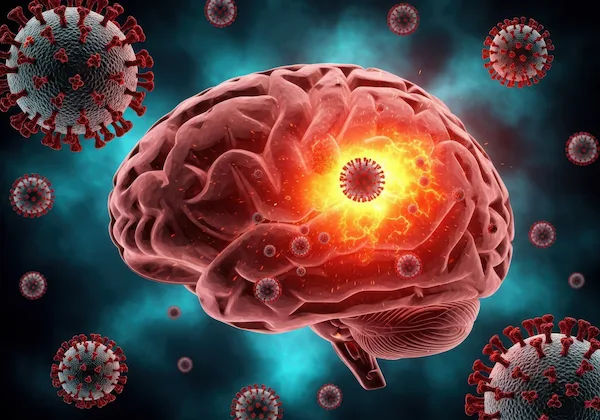Ways To Keep Your Brain Healthy
Discover 10 science-backed ways to keep your brain healthy areorganiseLearn how diet, exercise, sleep, stress management, and lifestyle habits can boost memory, focus, and long-term cognitive function.

Written by Dr. Rohinipriyanka Pondugula
Reviewed by Dr. Shaik Abdul Kalam MD (Physician)
Last updated on 13th Jan, 2026

Introduction
Your brain is the command centre for everything you do, think, and feel. From managing complex thoughts to storing cherished memories, your health is fundamental to your quality of life. Just like we exercise and eat well for our physical health, our brain requires conscious, consistent care to perform at its best and remain resilient against age-related decline. The good news? Modern science has shown that our daily choices have a profound impact on our cognitive longevity. This article delves into ten powerful, evidence-based strategies to nourish, protect, and enhance your brain health. We'll explore everything from the specific foods that fuel your neurons to the lifestyle habits that can help keep your mind sharp for years to come. Embracing these ways to keep your brain healthy is one of the most important investments you can make in your future self.
Why Brain Health is Your Most Important Asset
Think of your brain as the most complex and valuable computer you will ever own. Unlike a laptop, you can't trade it in for a newer model. Its health dictates your ability to work, learn, connect with others, and maintain your independence. A healthy brain ensures better memory, sharper focus, quicker learning, and improved emotional regulation. Investing in cognitive function isn't just about preventing disease; it's about thriving in your daily life and
enjoying a high quality of life as you age.
Neuroplasticity: Your Brain's Superpower
For decades, it was believed that the brain became hardwired after childhood. We now know this isn't true. The brain possesses an incredible ability known as neuroplasticity—the capacity to form new neural connections and reorganise itself throughout life. Every time you learn a new skill, solve a puzzle, or even navigate a new route home, you are strengthening your neural networks. This means it's never too late to build a better, more resilient brain.
Nourish Your Mind: The Brain-Healthy Diet
You truly are what you eat, especially when it comes to your brain. The brain consumes about 20% of the body's calories and nutrients, so the quality of that fuel is critical. A diet high in processed foods, unhealthy fats can promote inflammation and oxidative stress, which damage brain cells. Conversely, a nutrient-dense diet protects the brain and enhances its function.
The MIND Diet: A Blueprint for Cognitive Longevity
The Mediterranean-DASH Intervention for Neurodegenerative Delay (MIND) diet is specifically designed to boost brain health. It combines elements of the Mediterranean and DASH (Dietary Approaches to Stop Hypertension) diets. Studies have shown it can reduce the risk of Alzheimer's disease by up to 53% in participants who adhered to it rigorously.
- Leafy greens: (e.g., spinach, kale) - Aim for six or more servings a week.
- Other vegetables: At least one serving a day.
- Nuts: A great source of healthy fats and vitamin E - five servings a week.
- Berries: Especially blueberries and strawberries - two or more servings a week.
- Beans: A good source of protein and fibre - at least three servings a week.
- Whole grains: Three or more servings a day.
- Fish: High in omega-3 fatty acids - at least once a week.
- Poultry: Two times a week.
- Olive oil: As your primary cooking oil.
Key Nutrients and Where to Find Them
- Omega-3 Fatty Acids: Building blocks of the brain. Found in fatty fish (salmon, mackerel), walnuts, and flaxseeds.
- Antioxidants (Flavonoids): Combat oxidative stress. Found in berries, dark chocolate, and citrus fruits.
- Vitamin E: Protects cells from damage. Found in nuts, seeds, and avocados.
- B Vitamins: Crucial for energy production and creating neurotransmitters. Found in whole grains, eggs, and leafy
greens.
Move Your Body, Boost Your Brain: The Exercise Connection
Physical activity is as good for your head as it is for your heart. Aerobic exercise gets your blood pumping, which
means more oxygen and nutrients are delivered to your brain. This is one of the most effective ways to reduce brain fog
and improve mental clarity.
How Aerobic Exercise Slows Brain Ageing
Exercise stimulates the release of chemicals like Brain-Derived Neurotrophic Factor (BDNF), often called "Miracle-Gro
for the brain." BDNF supports the survival of existing neurons and encourages the growth of new ones, particularly in the hippocampus—a key area for memory and learning. Studies show that regular exercisers have greater volume in brain regions responsible for thinking and memory compared to sedentary individuals. Aim for at least 150 minutes of moderate-intensity exercise (like brisk walking, cycling, or swimming) per week.
Prioritize Restorative Sleep: The Brain's Cleansing Cycle
Sleep is not downtime for the brain; it's a period of intense activity and vital maintenance. During deep sleep, your brain engages in a unique cleansing process. The glymphatic system, a waste-clearance system, becomes highly active, flushing out toxic metabolic byproducts that accumulate between brain cells during the day, including beta-amyloid proteins associated with Alzheimer's disease. Skimping on sleep literally leaves your brain swimming in toxins, impairing cognitive function, memory, and mood. Most adults need 7-9 hours of quality sleep per night for optimal brain health.
Challenge Your Cognition: "Use It or Lose It"
The adage "use it or lose it" applies perfectly to the brain. Mental stimulation is essential for building cognitive reserve, which helps your brain become more resilient to pathology and age-related changes.
Beyond Crosswords: Novelty is Key
While puzzles are good, the brain thrives on novelty and complexity. Learning a new language, playing a musical instrument, taking up a new hobby like photography or chess, or even learning to code forces your brain to create new neural pathways. This is one of the best brain exercises for adults seeking to maintain mental acuity. The key is to choose activities that are challenging and unfamiliar.
Foster Social Connections: The Anti-Dementia Pill
Humans are inherently social creatures, and our brains are wired to connect. Meaningful social engagement is a powerful cognitive stimulus. Conversations force us to think, listen, empathize, and respond, all of which engage multiple brain networks. Research has consistently linked strong social ties to a reduced risk of dementia, depression, and even a longer life. Make time for friends and family, join a club, or volunteer. These interactions are not just enjoyable; they are a critical component of a brain healthy lifestyle.
Manage Chronic Stress: Taming the Mind's Saboteur
Acute stress is normal, but chronic stress is a silent killer for brain cells. It keeps the body in a heightened state of alert, flooding the brain with cortisol.
The Impact of Cortisol on Memory
Prolonged high levels of cortisol can damage and kill cells in the hippocampus, the brain's primary memory center. It can also lead to shrinkage of the prefrontal cortex, which governs executive functions like decision-making and self-control. Practices like mindfulness, meditation, deep breathing exercises, yoga, and spending time in nature are proven to lower cortisol levels and protect the brain from the damaging effects of stress.
Protect Your Head: Preventing Traumatic Brain Injuries
Even mild head trauma can have long-term consequences for brain health. Traumatic Brain Injuries (TBIs), including concussions, are a significant risk factor for cognitive decline and neurodegenerative diseases later in life. Always wear a seatbelt, use a helmet when cycling, skating, or skiing, and take steps to prevent falls at home, especially for older adults. Protecting your head is a simple but non-negotiable part of preserving cognitive function.
Manage Overall Health: The Heart-Head Connection
What's good for your heart is almost always good for your head. The brain is nourished by a dense network of blood vessels, and anything that damages the cardiovascular system can also harm the brain.
Why Blood Pressure and Sugar Matter to Your Neurons
High blood pressure (hypertension) can weaken and damage small blood vessels in the brain, leading to silent mini-
strokes that impair cognitive function over time. Similarly, high blood sugar levels, as seen in type 2 diabetes, can damage blood vessels and increase the risk of vascular dementia. If you have concerns about your blood pressure or blood sugar levels, it's crucial to manage them. Apollo24|7 offers a convenient home collection for tests like vitamin D or HbA1c, making it easier to monitor your health. If your readings are consistently high, consult a doctor online with
Apollo24|7 for a personalized management plan.
Avoid Harmful Habits: Smoking and Excessive Alcohol
Smoking and heavy drinking are two of the most damaging habits for overall health, and the brain is no exception. Smoking accelerates brain aging and shrinks the cortex, where important cognitive processes occur. It also significantly increases the risk of stroke. Excessive alcohol consumption can lead to vitamin deficiencies, nerve damage, and structural brain changes that impair memory and cognitive function. Quitting smoking and moderating alcohol intake (or avoiding it altogether) are critical steps for long-term neurological health.
Conclusion
Keeping your brain healthy and sharp is a lifelong journey built on daily habits, not a single destination. By integrating these science-backed strategies—nourishing your body with brain-boosting foods, staying physically and mentally active, prioritizing sleep, managing stress, and fostering social connections—you are actively building a moral and capable mind. Remember, neuroplasticity means it's never too late to start. Small, consistent changes can yield significant dividends for your cognitive function and overall well-being for years to come. Start today by choosing one or two tips from this list to focus on, and gradually build a lifestyle that supports your most important asset. Your future self will thank you.
More articles from Brain Degenerative Disorders
Frequently Asked Questions
What are the best brain exercises for adults?
Beyond puzzles, the best exercises involve learning something new and complex. This includes learning a musical instrument, a new language, taking up dance, playing strategy games like chess, or even learning a new software program. Novelty is key to forcing your brain to create new pathways.
Q2. Can you reverse brain damage from poor lifestyle choices?
While severe damage may not be fully reversible, the brain's neuroplasticity allows for significant recovery and improvement. Adopting a brain-healthy lifestyle—improving your diet, exercising, getting sleep, and reducing stress—can help repair neural connections, reduce inflammation, and improve cognitive function over time.
Q3. How does sleep affect brain health directly?
During deep sleep, your brain's glymphatic system activates, acting like a cleansing power wash. It flushes out metabolic toxins, including beta-amyloid proteins linked to Alzheimer's disease. Without enough sleep, these toxins build up, impairing cognitive function and memory.
Q4. What is the single most important thing I can do for my brain health?
There is no single magic bullet. The most robust approach combines physical exercise, a nutrient-dense diet, and quality sleep. However, if forced to choose, aerobic exercise has some of the most immediate and wide-ranging benefits, from boosting blood flow and BDNF to reducing stress.
Q5. When should I be concerned about my memory and see a doctor?
It's normal to occasionally forget names or misplace keys. However, you should consider consulting a doctor if you notice consistent or worsening symptoms like: asking the same questions repeatedly, getting lost in familiar places, having trouble following recipes or managing finances, or experiencing significant changes in personality or mood. If symptoms persist beyond two weeks, consult a doctor online with Apollo24|7 for further evaluation.



